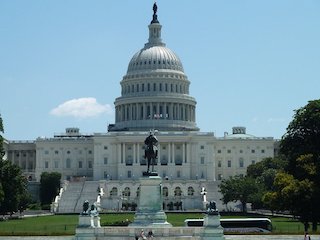UPDATE As the time ticks down for the Senate to begin voting on the infrastructure package today, it appears language favoring wireless-delivered broadband remains in the legislative text. That’s according to sources close to the wireless industry. They told Inside Towers the speeds hammered out by the bipartisan agreement between the Democrat and the GOP Senators remain 100 Megabits per second down/20 Megabits up.
Previously, Inside Towers reported, the package language favored wired broadband.
“This bipartisan bill has a lot of force. We feel confident these elements that have been agreed to concerning the wireless industry ‘will stick,’” said one source in an interview. “The deal is bipartisan. That makes it hard to change. It has a lot of momentum behind it if it remains bipartisan,” said a different source.
Overall, the legislative text shared with Inside Towers still calls for $65 billion overall in broadband subsidies. Of that, $40 billion is allocated to states for infrastructure deployment. It appears this language settles on the subsidies being administered by the National Telecommunications and Information Administration (NTIA), rather than the FCC.
The document defines the term “unserved location” as meaning a broadband serviceable location, as determined in accordance with the broadband DATA maps, that has no access to broadband service; or lacks access to reliable broadband service offered with—a speed of not less than—25 Megabits per second.
As of last night, Senate Majority Leader Chuck Schumer (D-NY), was still saying he intended to bring the bill up for a floor vote beginning today. The sources cautioned, however, that the overall infrastructure bill is not agreed-upon by the negotiators and many aspects can still change. Still to be determined, for example, are how to pay for the overall bill and address broadband affordability, according to the sources.
Asked for a comment by the Wireless Infrastructure Association, President and CEO Jonathan Adelstein told Inside Towers that the association “enthusiastically supports the reported bipartisan deal, which lets all broadband technologies, including wireless, compete for funding by setting a flexible 100/20 standard for eligibility – a hard fought win. It explicitly embraces our call for technological neutrality.”
Adelstein also pointed out the language adopts the recommendations he made at the recent Senate hearing to prioritize speed to deployment and network reliability, which he says, “play to wireless’ competitive advantage.” He called the deal “a win for rural consumers and businesses who will get broadband faster, with mobility, resiliency, and better service for public safety.”
By Leslie Stimson, Inside Towers Washington Bureau Chief





Reader Interactions